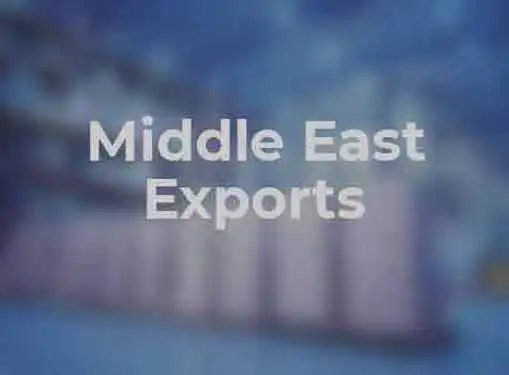Articles on Exporting
Exporting to the Middle East
Looking to expand your business? Have you thought about exporting to the Middle East? It's a big market with a taste for stateside goods and services.
The Middle East probably isn't high on the list of places you want to do business -- but maybe it should be.

Despite its volatile reputation, the Middle East can be fertile ground for U.S.-based, small business exporters. The key is to know what you're getting into before you get in over your head. Here's what you need to know . . .
Although oil dominates the trade landscape in the Middle East, there are a multitude of other products that are exported from and imported to the region on a daily basis. Electronics, food products, and other consumer goods are in high demand throughout the Middle East, and many countries look to American businesses for the merchandise their people desire.
There is a misconception that the U.S. is not a welcome trade partner throughout most of the Middle East. However, that simply isn't true. Many Middle Eastern nations enjoy booming trade relationships with the U.S. America is Israel's single largest trade partner, and is the top exporter to several other countries including Egypt, Kuwait, and Saudi Arabia.
But healthy trade relationships don't necessarily mean that exporting to the Middle East is risk-free. If you don't know what you are doing, you can quickly find yourself in trouble. The best way to stay on track is to follow the same strategy others have used in achieving exporting success in the region.
Start with Trade Visits
Trade visits are designed to familiarize yourself with the region, its economies, and potential export partners. Ideally, a trade visit should allow you the opportunity to meet with distributors and conduct basic market research. In many cases, several trade visits will be necessary before you are ready to ship your first products to the Middle East. The U.S. government's export website (www.export.gov) provides list of upcoming events in the region to help make your visit more productive.
Identify Distributors
Relationships with distributors are essential for doing business in the Middle East. The problem is that not all distributors are capable of living up to their end of the bargain. Some aggressively market their clients' products while others take a more passive approach. In addition to interviewing multiple candidates, it's wise to employ distributors on a probationary basis until they have proven their ability to meet your expectations.
Establish a Base
Some U.S. exporters have found it helpful to eventually bypass distributors and establish a base in the region. From their Middle Eastern office, these companies are able to maintain a constant presence in the marketplace and build relationships with buyers themselves. Many of these companies also provide customer service from regional offices, giving them an advantage over businesses who are forced to provide customer service from a distance.
Trade Tips
Exporters have found a few other tips helpful in the Middle East. Whenever possible, rely on local talent to market your product. Locals are much more equipped to understand the market and will usually go the extra mile to get the word out about your products. However, once the word has gotten out, don't expect to be able to charge the same prices for your products as you do in the U.S. Per capita income is significantly lower in the Middle East and you will have to lower your margins to make a dent in market share.
Share this article
Additional Resources for Entrepreneurs




Conversation Board
Have you ever exported goods to the Middle East? Was it hard or easy? What were your key lessons learned? Please comment on this topic below.